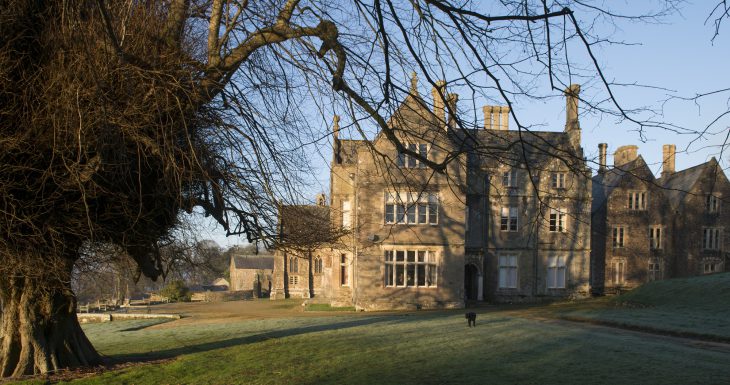Hall, Bishops Tawton
Stone mansion which predates the Domesday Book.
Bishops Tawton, Barnstaple, Devon, EX32 0ES

- Guide dogs welcome
- Accessible parking
- Wheelchair ramps/routes
- Accessible toilets
The manor of Tawton was recorded in the Domesday Book of 1086 as one of the 24 holdings of the Bishop of Exeter. Within this manor was the estate of Hall, which a Bishop granted to his lawyer Simon de Hall, “a man very learned in the laws (who) grew so gracious with the Bishop”. The Devon historian Tristram Risdon (d.1640) states that Simon’s father had previously been resident at Hall, albeit apparently only under a lease, and thus the family name is likely to have been de Hall before the grant to Simon, who was thus the first of his family to possess it freehold with a heritable interest.
The feudal overlord remained the Lord of the Manor of Bishop’s Tawton, namely the Bishops of Exeter until the mid-1500s and then the Earls of Bedford. Simon de Hall died leaving no sons and his sole heiress was thus his only daughter Thomasine de Hall (d.1502), who had married Richard Chichester. As part of the marriage settlement her father had settled on her his estate of Hall, and thus the estate became the possession of this junior branch of the Chichester family of North Devon, known as “Chichester of Hall” to differentiate it from several other prominent branches of the same family seated in Devon, namely at Raleigh, Youlston, Eggesford and Arlington. Richard Chichester the husband of Thomasine de Hall was the son of Richard Chichester, who was the son of John Chichester by his wife Elizabeth Dymock, a daughter and co-heiress of Richard Dymock. John Chichester was the younger son of Sir John Chichester (d.1437) of Raleigh by his wife Alice Wotton, a daughter and co-heiress of John Wotton of Widworthy.
- Guide dogs welcome
- Accessible parking
- Wheelchair ramps/routes
- Accessible toilets
